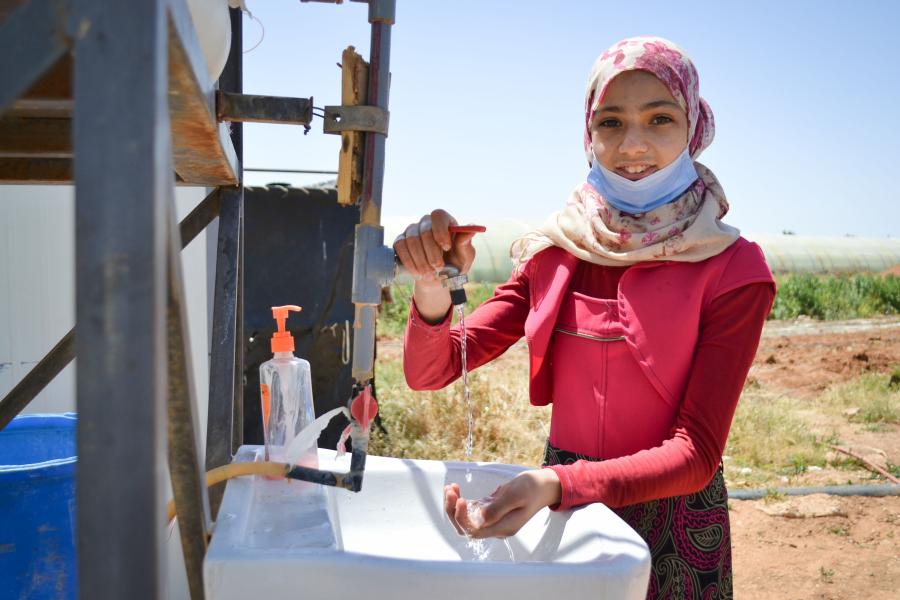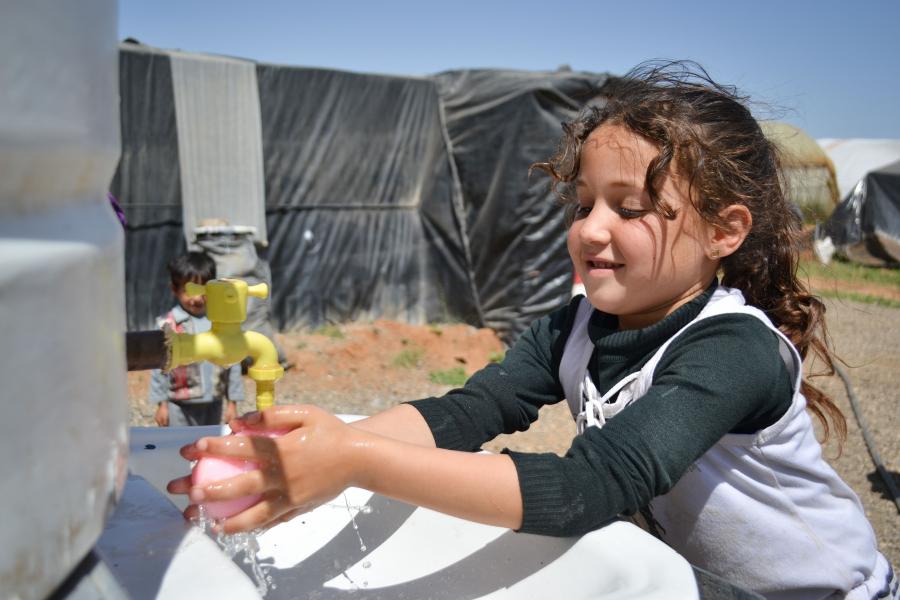UNICEF and Ministry of Water and Irrigation launch “Clean Water and Sanitation for All” Monitoring Framework
18 July 2021
Jordan is the second most water scarce country globally, potentially placing thousands of people at risk of not meeting basic water needs. To ensure water security for all, UNICEF supported the Ministry of Water and Irrigation in developing a new monitoring and reporting framework for “Clean Water and Sanitation for All”.

Jordan is the second most water scarce country globally, potentially placing thousands of people at risk of not meeting basic water needs. To ensure water security for all, UNICEF supported the Ministry of Water and Irrigation in developing a new monitoring and reporting framework for “Clean Water and Sanitation for All”.
The new Sustainable Development Goal (SDG) 6 “Clean Water and Sanitation for All” monitoring and reporting framework will support the Government of Jordan to manage water security. It will strengthen the monitoring and reporting capabilities of the Ministry and its partners and will foster cross-sectoral collaboration between Government entities.
“Half of the world’s population could be living in areas facing water scarcity by as early as 2025, and in Jordan, dwindling water supplies and a growing population will halve per capita water use by the end of this century,” said Tanya Chapuisat, Representative, UNICEF Jordan.
“To address water scarcity and substantially reduce the number of people suffering from it by 2030, UNICEF works closely with the Government of Jordan and partners to increase water-use efficiency across all sectors.” she added.
In Jordan, currently more than 98 per cent of the population has access to an improved water source and more than 94 per cent are connected to a piped network. However, water is often only available once a week in urban areas, and less than once every two weeks in rural areas, with reduced frequency during the summer. More than 88 per cent of existing sanitation systems are safely managed while only a third of schools meet basic sanitation services.
Recent data shows that without any interventions, by 2100 [2] some Jordanian households will not even have access to the minimum of 40 litres of piped water per person per day. Low-income neighbourhoods will be the hardest hit.
This SDG6 framework is critical. It adopts guidelines for data collection and management by different government bodies that will assist in overcoming the water and sanitation challenges the country is facing. It also provides guidance and reporting requirements for each of the SDG6 indicators, offering a step-by-step methodology to effectively monitor and report progress towards the SDG6 agenda.
“We appreciate UNICEF’s support in the development of the SDG6 framework,” said Engineer Mohammad Aldwairi, Secretary General Assistant for Strategic Planning Affairs, Ministry of Water and Irrigation (MWI). “This framework will help us to better monitor the situation and to accelerate the realization of children’s rights to safe and clean drinking water, hygiene and sanitation services.”
SDG6 aims to ensure availability and sustainable management of water and sanitation for all. This is done through:
- Appropriate water and sanitation services, which are critical to the health of people and the planet.
- Addressing the issues relating to drinking water, sanitation and hygiene (WASH), but also the quality and sustainability of water resources worldwide.
- Tackling improvements in drinking water, sanitation and hygiene that are essential for progress in all areas of development including nutrition, education, health and gender equality.



